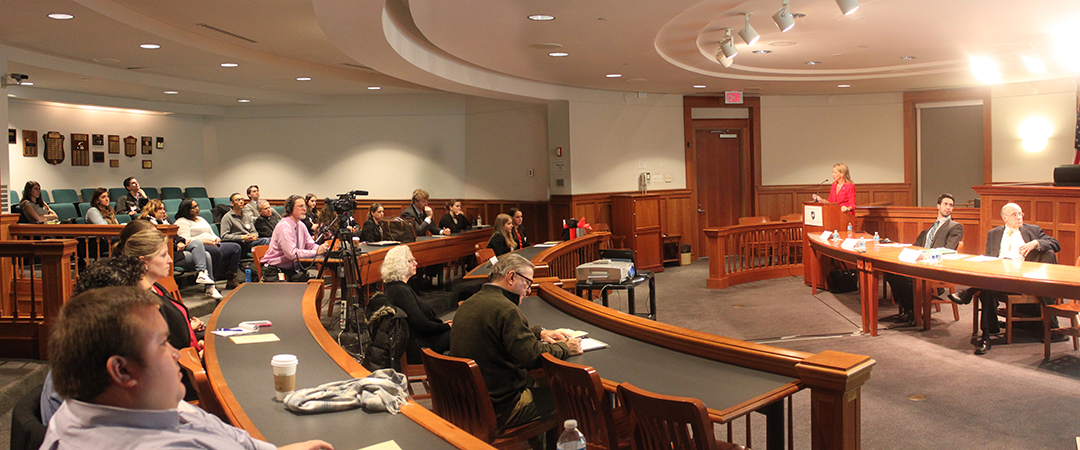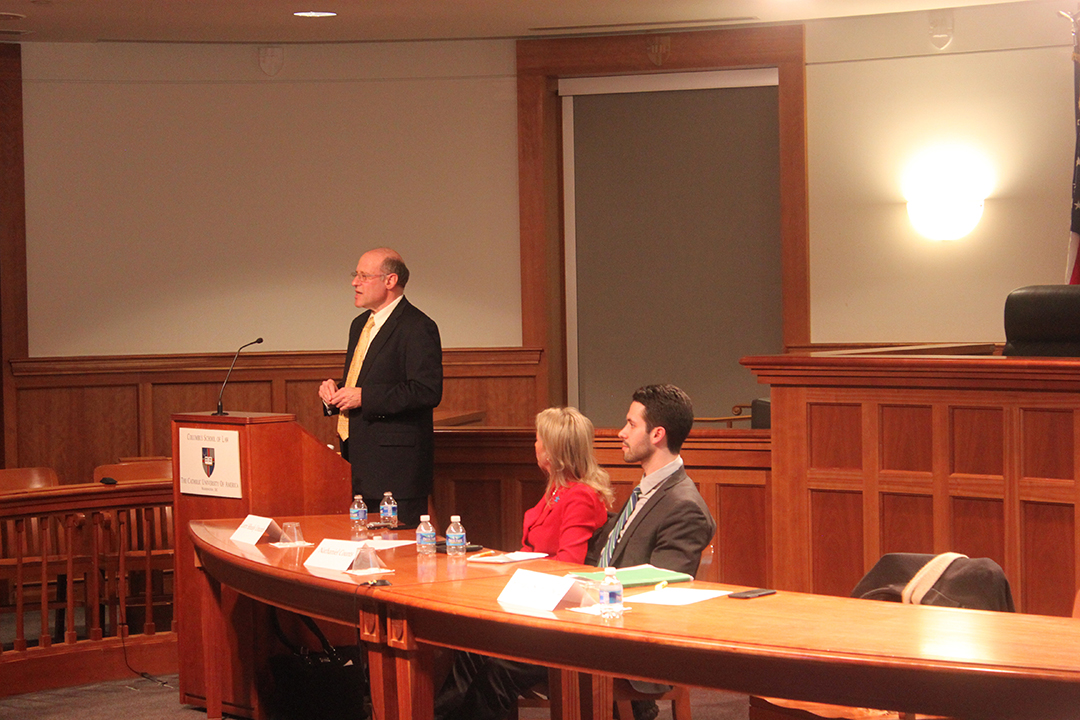

Even as the Supreme Court hears a second challenge on March 4 to the legality of the Obama Administration's Patient Protection and Affordable Care Act (ACA), a related debate over the national health law's usefulness continues in other quarters. Catholic University's Journal of Contemporary Health Law and Policy's 2015 Symposium, "Comparable Coverage: Essential Health Benefits, Mental Health Parity Laws, and State Choice under the Affordable Care Act," provided an opportunity to examine the ACA's insurance provisions regarding behavioral disorders, specifically autism. The symposium's keynote speaker, Lorri Shealy Unumb, shared her family's odyssey for health care coverage for her teenage autistic son, Ryan, in starkly personal terms. Unumb, a lawyer who now serves as vice president of state government affairs for the advocacy group Autism Speaks, supplemented her hour-long presentation with an engaging slide show.

Unumb's son was diagnosed with severe autism at 22 months. The condition has no cure, but most medical experts recommended treatment with a regimen known as Applied Behavior Analysis (ABA), which often yields some success for helping an autistic child cope with the world around them. An ABA therapeutic regimen typically involves working with a child at least 40 hours per week and costs at least $70,000 per year, a daunting figure even to the high-earning, dual income Unumb family. Health insurers declined coverage for Ryan's autism, claiming that ABA as a treatment was "experimental" and "ineffective." An exasperated Unumb eventually wound up writing a bill that, after much lobbying, passed in 2007 in her home state of South Carolina that mandated health insurers to cover treatment for autism and other behavioral disorders. In 2015, 38 states now require insurance coverage for Applied Behavior Analysis. Her work was profiled on CNN, on NPR's "Morning Edition," and in Town & Country magazine, which named her one of three 2009 "Women Who Make a Difference."

The gradual success of her crusade, Unumb noted, has been complicated by the passage of the Affordable Care Act in 2011. Initially, it was unclear whether the essential benefits provided by the law would include coverage for behavioral health treatments. Eventually, the answer was affirmative. But a significant number of states have opted out of the law, leaving swaths of families with no, or only partial, coverage of habilitative services depending on where they live. Unumb concluded that the Affordable Care Act is a plus for families raising children with autism or other disorders, but that the law as implemented leaves great gaps in its benefits coverage. Despite the ACA's four year-old history, Unumb said that health insurance in America is still like spinning the Wheel of Fortune. "It's a total game of chance if your insurance will pay for [autism treatment] or if you will," said Unumb. "It's crazy what a game of chance it still is in 2015 if your loved one will get treatment."

Unumb was introduced by Katelyn Semales, senior lead articles editor for the journal. Respondents were Ronald S. Honberg, national director of policy and legal affairs, National Alliance on Mental Illness; and Nathaniel Counts, senior policy advisor, Mental Health America. Founded thirty-one years ago, the Journal of Contemporary Health Law and Policy publishes scholarship on a diverse range of health-related topics, including articles that focus on government insurance programs, bioethics, and patient rights. Its 2015 symposium was dedicated to Professor George P. Smith II, the journal's founding faculty editor.
